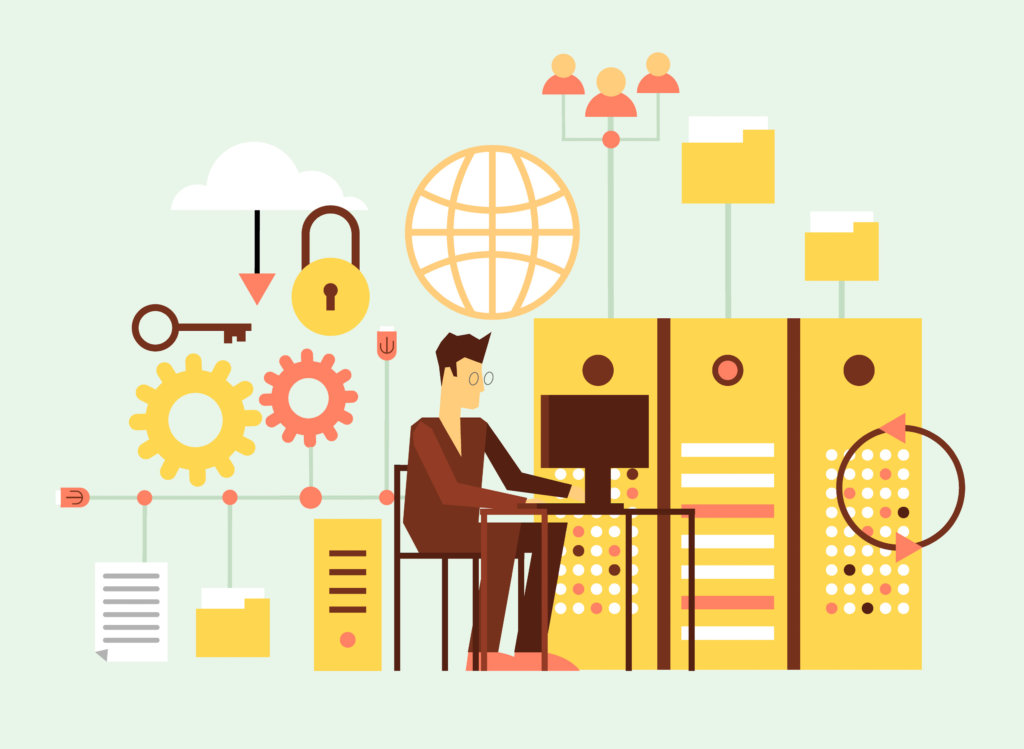What is dedicated server? When do you need one?
Much like many organizations, you probably opted for cloud computing when you first launched your web application, database, or mail server. After all, cloud computing services seem convenient, agile, and cost-efficient. But cloud services are not the only ones in the industry. Many are starting to realize that dedicated servers can be low cost, have higher throughput, and can be just as reliable as cloud computing. You may be thinking, “What is a dedicated server – and when do you need one?”
1. What is a dedicated server?
A dedicated server is precisely what its name suggests: a server dedicated entirely to your organization’s tasks and performance. Unlike a typical PC, a dedicated server consists of enterprise-grade hardware resources that organizations can leverage to power their business-critical applications.

With dedicated servers, you do not share CPU, RAM, or disk resources with other organizations. Sometimes, the phrase “bare metal servers” is used to describe dedicated servers. Because the user is close to the physical hardware.
Organizations can achieve the highest possible task speeds with a dedicated server because you don’t share the computing power or connectivity with another organization. Also, IT administrators have full control over the server. As such, there are limitless use cases that you can achieve with dedicated servers. For example, you can use them for web hosting, database operations, email hosting, and reseller hosting.
For example, most websites start with a shared hosting plan but soon grow to exceed that cheap shared plan’s limits. Your options here could include an upgrade to a virtual private server (VPS) or a dedicated one. It’s up to you to weigh up the different options.
2. Why would you need a dedicated server?
Your website is growing and needs to be able to handle an increase in traffic
If you anticipate that your website is going to grow quickly, it might be a good idea to opt for a dedicated server now. For example, if your site is still using shared hosting when your traffic spikes, its performance could drop significantly. This can be a slippery slope of higher bounce rates and loss of revenue. It’s important to give yourself time to migrate your site and ‘settle’ its performance before any potential problems arise.

Security is a concern for your website
Security is important for every website, but especially for those handling sensitive information. This could include confidential emails, credit card numbers, or sensitive customer information. It’s crucial to protect this information and your website from viruses, hacks, and other risks.
With a dedicated server, you’re completely in charge of your site’s security. This means you can optimize the features you need for the specific requirements of your website and stored files. Of course, you’re also responsible for how these features are implemented, but this is one of the benefits of flexibility.
You’d like your page loading times to be optimal
Your page loading times can have a significant impact on practically all aspects of your website. Slow pages can lead to low engagement metrics and high bounce rates. A dedicated server can help you to optimize this aspect of your website as much as possible.
On a shared server, you won’t have any insight into when the server’s resources are being used elsewhere, which could make your site run slowly. Opting for a dedicated server will guarantee you have the bandwidth you need to enhance your page loading times.

Having control over your server is important to you
The final reason you may want to choose a dedicated server over other options is a simple one: control. We’ve alluded to this in previous sections, but a dedicated server gives you complete responsibility for how you choose to use your server.
For example, you’re even free to choose the server software you prefer. Plus, you can adjust hardware specifications and install your own operating system (OS). Because of this, a dedicated server may be an enticing option for advanced web developers, and those with unique and specific requirements.
As a business owner, it’s important to make a website hosting decision that reflects your site’s unique requirements and your budget. If your site is experiencing exponential growth or increased traffic demands, opting for a dedicated server solution will provide you with more agility than sharing a server with other websites.
With a dedicated server, you can easily optimize server configurations, stay prepared for network traffic spikes, and establish robust security standards that meet your business’s unique needs. If you’re ready for high levels of website performance and security, try a managed dedicated server plan today.